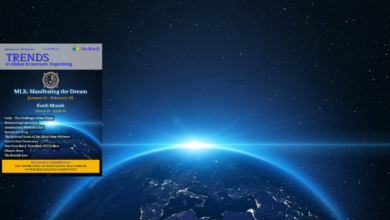In his Prison Notebooks, the social theorist and activist Antonio Gramsci in critiquing the ongoing crises in the years between the two world wars observed that “(t)he crisis consists precisely in the fact that the old is dying and the new cannot be born.” Gramsci’s observation describes the confluence of crises we are experiencing in the first decades of the 20th century. From the devastating environmental impacts contributing to and caused by climate change, the assault on women’s rights in the United States, the rise of authoritarian regimes across the planet and the reemergence of war (and the resulting refugee crisis) in Eastern Europe, we have clear indicators that the political, social and economic order that emerged in the aftermath of the Second World War is dying. It is our mission at TRENDS in Global Grassroots Organizing to shine a light on the new that is being born in the midst of these troubled times. This new order is characterized by the multitude of organizations that have emerged, and continue to emerge across the 11 Themes of Global Unity. We are proud to share the visions of our dedicated authors as they foresee and articulate the path forward to a caring, peaceful and sustainable present and future.
Leave a Reply





